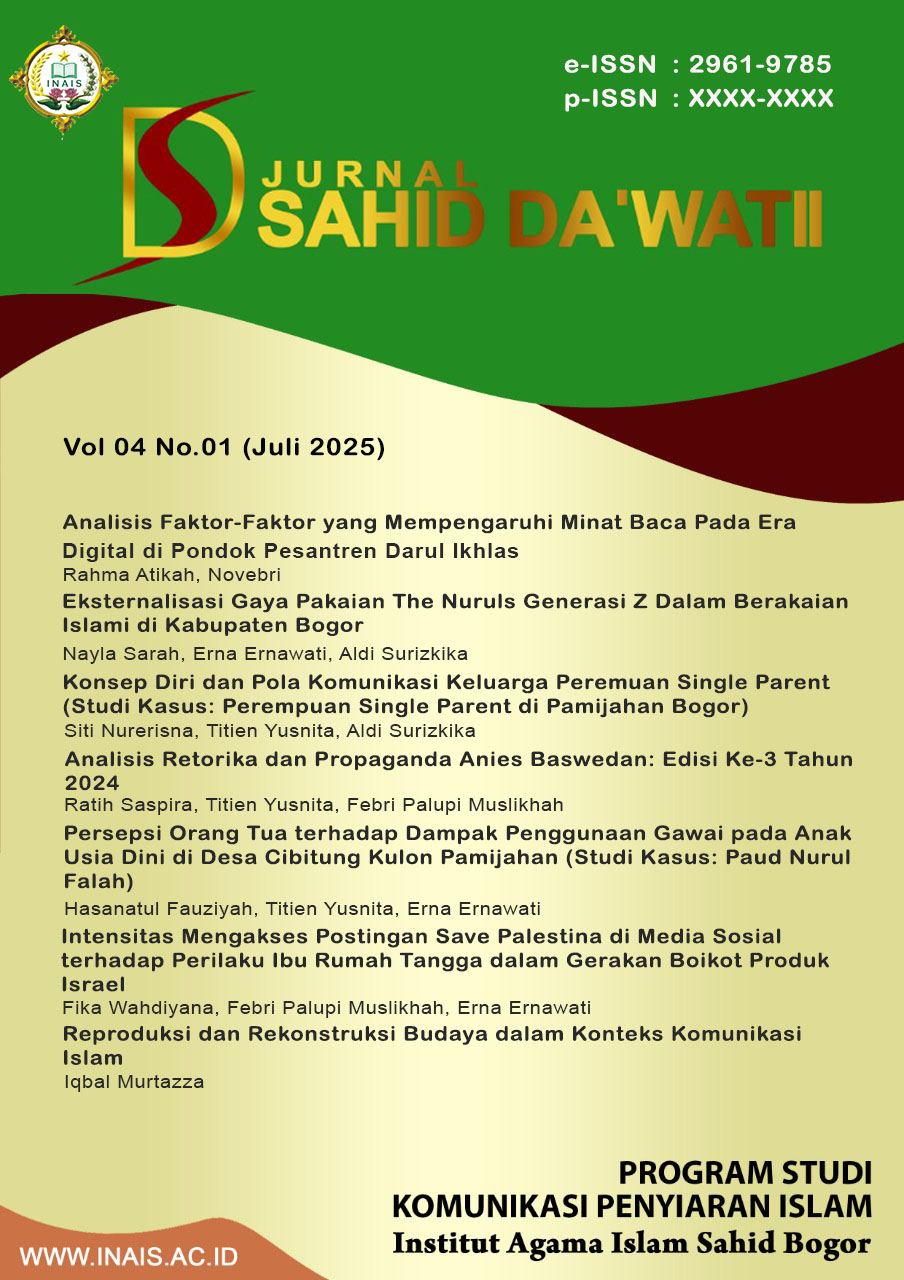This study aims to identify and analyze parental perceptions regarding the use of gadgets by early childhood learners, as well as how such practices are applied at PAUD Nurul Falah, Pamijahan, Bogor. In today’s digital era, gadgets have become an integral part of daily life, including in the routines of young children. This research employed a descriptive qualitative approach, with data collected through direct observation, in-depth interviews with parents and teachers, and documentation of learning activities. The findings reveal that many parents view gadgets positively, particularly as educational tools that can introduce children to basic concepts such as letters, numbers, and language through interactive content. However, some parents expressed concerns over the potential negative impacts of gadget use, such as dependency, reduced social interaction, and behavioral issues. The degree of parental supervision, frequency of use, and the parents’ level of digital literacy were found to be crucial factors in determining the outcomes of gadget usage. This study highlights the importance of active parental involvement in managing and guiding children’s gadget use to ensure its benefits are maximized while minimizing the associated risks.
Keywords: Parental perception; gadgets; early childhood













